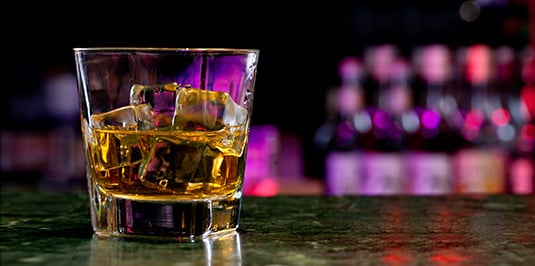For years, alcohol helped quiet the anxiety tied to my bipolar disorder. When I finally got the right medication, the desire to drink vanished.
Anxiety is usually a big part of bipolar disorder, and my medication would only help so much.
My anxiety would build throughout the day — I would live with it, meditate, read, and watch the cooking channel to relax. But it always came back. It was ever-present.
So, at the end of each day, I would drink. Mostly wine. I drank alone, and it seemed like I drank a lot.
But rather than drinking heavily all at once, I spread it out over several hours, typically from five to 10 p.m.
How My Alcohol Use Got Out of Control
I didn’t realize it at the time, but I drank to ease my anxiety.
I would drink alcohol until the anxiety felt manageable — and then I would continue sipping the alcohol to maintain that sense of relief.
All this happened subconsciously.
This behavior is called self-medicating, and I worried about becoming an alcoholic. I showed many signs, but I was not addicted.
RELATED: Sober Consideration: Bipolar Disorder and Alcohol
I used alcohol specifically to quiet my anxiety. In that sense, I abused it — not to get drunk, nor to forget my troubles, but simply to feel calm and silence the overwhelming sense of dread in the pit of my stomach.
I say “abuse” because my drinking wasn’t social or occasional. I drank alone and did so every night. This continued for years and years.
How Changing Medications Led to No Longer Drinking
Then, one day, I stopped drinking. It wasn’t even a conscious decision. Suddenly, my overwhelming anxiety was gone — and along with it went my desire to drink.
I had visited my doctor, who changed my medication. The new meds reduced my anxiety by about 80 percent, eliminating my “need” for alcohol as a coping mechanism.
I often think about this — about others with mental health conditions who drink heavily. They, too, might be self-medicating.
People around me, mostly family and friends, had worried about my drinking. My wife gave me a hard time about it. Back then, I couldn’t really explain why I drank; I just drank.
Looking back, I understand how it might have appeared that I may have been an alcoholic. But deep inside, I knew I wasn’t.
How Alcohol Use Can Worsen Bipolar Symptoms
My medications all carried warnings against alcohol use, and research shows drinking alcohol can make bipolar symptoms worse.
Studies have linked higher alcohol use with increased depressive, manic, or hypomanic symptoms, as well as reduced workplace functioning for up to six months afterward. These effects were especially noticeable in people with bipolar 2 compared with bipolar 1 disorder.
The warnings on my bipolar medication bottles clearly said I shouldn’t drink alcohol at all. I now understand why:
- Getting drunk makes depression worse.
- Drinking too much alcohol makes sleep more difficult, and good sleep might be the single most important factor in managing bipolar symptoms.
- Alcohol interferes with bipolar medications, amplifying the effects of both the alcohol and the medications, making each potentially more harmful.
If You Self-Medicate With Alcohol, Look for the ‘Why’ Behind It
It would have helped me to have known why I was drinking every day. Recognizing that I was drinking to relieve the anxiety might have prompted me to talk openly with my doctor and start a different — and more effective — medication sooner.
But I never talked to my doctor about my drinking.
Whenever I had to fill out questionnaires asking about alcohol use, I always reported drinking less than I actually did. The label “alcoholic” was another stigma I didn’t need. I knew drinking made me feel better — I just didn’t understand why.
Many of us self-medicate, but most of us don’t want to discuss it. We don’t get drunk, so we don’t view our alcohol use as a serious problem. We just know that if we talk about it, we’ll be told to stop. And simply stopping drinking, without addressing the underlying reason, isn’t a real solution.
Discovering That I Had an Anxiety Problem, Not a Drinking Problem
I’m not here to advocate drinking, nor am I here to preach and tell you that you need to stop.
RELATED: Bipolar and Alcohol: To Drink or Not?
But I am here to share that I drank every night for 25 years — until one day I was prescribed the right medication, and I stopped. It turned out I didn’t have a drinking problem; I had an anxiety problem.
It wasn’t alcohol I craved — it was relief from anxiety. Once I experienced that relief through medication, I no longer felt the need to drink.
Editorial Sources and Fact-Checking
- Sperry SH et al. Longitudinal Interplay Between Alcohol Use, Mood, and Functioning in Bipolar Spectrum Disorders. JAMA Network Open. June 7, 2024.
UPDATED: Originally published October 2016.


